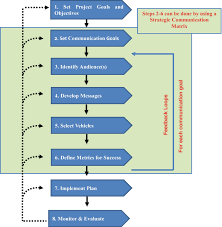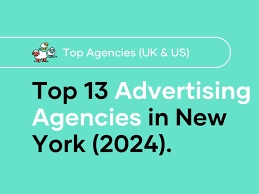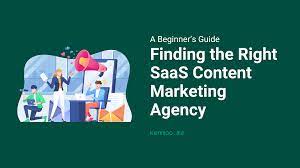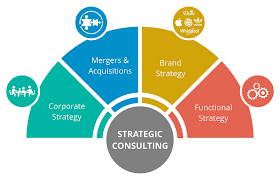Communication Strategy Consulting: Unlocking the Power of Effective Communication
In today’s fast-paced and highly competitive business environment, effective communication has become more crucial than ever. Businesses that can effectively convey their message, engage with their target audience, and build strong relationships are the ones that stand out from the crowd. This is where communication strategy consulting comes into play.
Communication strategy consulting is a specialized service that helps businesses develop and implement strategic communication plans to achieve their goals. It involves a comprehensive analysis of the company’s current communication practices, identifying areas for improvement, and crafting a tailored strategy to enhance overall effectiveness.
One of the key benefits of communication strategy consulting is gaining a fresh perspective. Often, businesses get caught up in their day-to-day operations and lose sight of the bigger picture. A communication consultant brings an external viewpoint, helping to identify blind spots and uncover new opportunities for growth.
A skilled communication strategy consultant starts by understanding the business’s objectives, target audience, and industry landscape. They conduct thorough research to gain insights into market trends, competitor strategies, and customer preferences. Armed with this knowledge, they can develop a robust communication plan that aligns with the company’s goals and resonates with its target audience.
The consultant works closely with key stakeholders within the organization to ensure buy-in and alignment across all levels. They collaborate with internal teams such as marketing, public relations, and human resources to ensure consistent messaging across various channels. Additionally, they provide guidance on selecting appropriate communication tools and platforms that best suit the organization’s needs.
Another vital aspect of communication strategy consulting is crisis management. In today’s digital age where news spreads rapidly through social media platforms, companies must be prepared to handle crises effectively. A communication consultant helps businesses establish crisis response protocols, develop messaging strategies for different scenarios, and train key personnel on how to navigate challenging situations while maintaining transparency and credibility.
Furthermore, a communication strategy consultant assists in measuring the success of implemented strategies. They establish key performance indicators (KPIs) and regularly monitor and evaluate the effectiveness of communication efforts. This allows for data-driven decision-making and the ability to adapt strategies based on real-time feedback.
Ultimately, communication strategy consulting empowers businesses to harness the power of effective communication. It helps them build strong brands, enhance customer relationships, drive sales, and navigate challenging situations with confidence. By investing in professional guidance, companies can unlock their full potential and gain a competitive edge in today’s dynamic business landscape.
In conclusion, communication strategy consulting plays a vital role in helping businesses develop and implement effective communication plans. By leveraging the expertise of skilled consultants, companies can enhance their messaging, engage with their target audience more effectively, and achieve their business objectives. In a world where effective communication is paramount, partnering with a communication strategy consultant can be a game-changer for any organization seeking growth and success.
Benefits of Communication Strategy Consulting: Amplifying Brand Awareness, Strengthening Customer Relationships, Fostering Customer Loyalty, Boosting Sales, Driving Cost Savings, and Gaining a Competitive Edge
- Increased brand awareness
- Improved customer relationships
- Enhanced customer loyalty
- Increased sales
- Cost savings
- Competitive advantage
Challenges in Communication Strategy Consulting: Exploring High Costs, Limited Flexibility, Over-Reliance, and Lack of Ownership
- High Cost
- Lack of Flexibility
- Over-Reliance
- Lack of Ownership
Increased brand awareness
Increased Brand Awareness: Elevating Your Business’s Profile through Communication Strategy Consulting
In today’s crowded marketplace, building brand awareness is essential for businesses to stand out from the competition. This is where communication strategy consulting can make a significant impact. By partnering with a communication strategy consultant, businesses can effectively raise their profile, improve their reputation, and ultimately increase brand awareness.
One of the key advantages of communication strategy consulting is the ability to develop a comprehensive plan that aligns with the business’s goals and target audience. A skilled consultant will conduct in-depth research to understand the market landscape, competitor strategies, and customer preferences. Armed with this knowledge, they can craft a tailored communication strategy that resonates with the target audience and effectively conveys the brand’s message.
With a well-defined communication strategy in place, businesses can proactively engage with their target audience through various channels. Whether it’s through traditional media outlets, social media platforms, or other digital channels, a communication strategy consultant helps businesses identify the most effective channels to reach their desired audience.
Consistent messaging across all communication channels is crucial for building brand awareness. A communication strategy consultant ensures that all messaging is aligned and coherent across different platforms. This consistency helps to establish a strong brand identity and reinforces key messages in the minds of consumers.
Furthermore, a skilled consultant understands the importance of storytelling in capturing attention and creating an emotional connection with the audience. They help businesses develop compelling narratives that highlight unique selling points and differentiate them from competitors. By crafting engaging stories that resonate with consumers’ values and aspirations, businesses can create lasting impressions that contribute to increased brand awareness.
Another valuable aspect of communication strategy consulting is reputation management. In today’s digital age where information spreads rapidly, maintaining a positive reputation is vital for business success. A communication strategy consultant helps businesses proactively manage their online presence by monitoring social media conversations, addressing customer feedback promptly and transparently, and mitigating potential crises before they escalate. By effectively managing their reputation, businesses can build trust and credibility, further enhancing brand awareness.
Increased brand awareness not only leads to greater recognition but also opens doors to new opportunities. As the business’s profile grows, it becomes more visible to potential customers, partners, and investors. This increased visibility can attract new customers, foster strategic partnerships, and even lead to media coverage that further amplifies the brand’s reach.
In conclusion, communication strategy consulting offers businesses a powerful tool to increase brand awareness. By developing a tailored communication plan, ensuring consistent messaging across channels, and proactively managing reputation, businesses can elevate their profile and build public awareness. Increased brand awareness not only enhances recognition but also opens doors to new opportunities for growth and success. Through effective communication strategy consulting, businesses can take their brand to new heights in today’s competitive marketplace.
Improved customer relationships
Improved Customer Relationships: Building Strong Connections through Communication Strategy Consulting
In today’s highly competitive business landscape, establishing and maintaining strong customer relationships is paramount. One significant advantage of communication strategy consulting is its ability to enhance these relationships by tailoring communication efforts to the specific needs of your target audience.
When businesses invest in communication strategy consulting, they gain valuable insights into their customers’ preferences, behaviours, and pain points. Through thorough research and analysis, consultants help identify the most effective channels and messaging strategies to engage with the target audience.
By understanding your customers on a deeper level, you can create tailored communication plans that resonate with them. This personalised approach demonstrates that you genuinely understand their needs and are committed to providing solutions that address their specific challenges.
Effective communication strategies enable businesses to establish trust and credibility with their customers. By consistently delivering relevant and valuable content through the right channels, you can position yourself as an industry expert and build a reputation for being reliable and customer-centric.
Moreover, a well-crafted communication strategy allows for meaningful interactions with your customers. It provides opportunities to actively listen to their feedback, concerns, and suggestions. By incorporating customer feedback into your strategies, you show that you value their opinions and are dedicated to continuous improvement.
Through regular communication touchpoints such as email newsletters, social media engagement, or personalized messaging campaigns, you can stay top-of-mind with your customers. This helps nurture long-term relationships and fosters loyalty towards your brand.
Additionally, effective communication strategies can help businesses address any issues or concerns promptly. By establishing clear lines of communication and providing accessible channels for customer support or feedback, you demonstrate a commitment to resolving problems in a timely manner. This proactive approach not only improves customer satisfaction but also helps mitigate potential negative impacts on your brand reputation.
In conclusion, improved customer relationships are a significant benefit of investing in communication strategy consulting. By developing tailored strategies that resonate with your target audience’s needs and preferences, you can foster stronger connections and build trust and loyalty. Effective communication allows for meaningful interactions, active listening, and prompt issue resolution. Ultimately, by prioritising customer relationships through strategic communication, businesses can differentiate themselves in the market and drive long-term success.
Enhanced customer loyalty
Enhanced Customer Loyalty: The Power of Effective Communication Strategy
In today’s highly competitive business landscape, customer loyalty is a precious commodity. Building a base of loyal customers who not only repeatedly choose your products or services but also advocate for your brand is essential for long-term success. This is where communication strategy consulting can make a significant impact.
A well-crafted communication strategy, developed with the help of a skilled consultant, can play a pivotal role in fostering customer loyalty. By effectively communicating with your target audience, you can create meaningful connections and build trust that keeps customers coming back for more.
One key aspect of enhancing customer loyalty through communication strategy is understanding your customers’ needs and preferences. A communication consultant can conduct thorough research to gain insights into your target audience’s motivations, pain points, and desires. Armed with this knowledge, you can tailor your messaging to resonate with their specific needs and build an emotional connection.
Consistency is another crucial factor in building customer loyalty. A communication strategy consultant helps ensure that your messaging remains consistent across all touchpoints, whether it’s through advertising campaigns, social media interactions, or customer service communications. Consistency breeds familiarity and reliability, which are important elements in building trust and loyalty.
Moreover, an effective communication strategy allows you to keep customers informed about new products or services, special offers, or any updates relevant to their interests. By proactively sharing valuable information through various channels such as email newsletters or social media updates, you demonstrate that you value their patronage and want to keep them engaged.
Listening to your customers is equally important in fostering loyalty. A communication strategy consultant can help establish channels for feedback and actively engage with customers through surveys, focus groups, or social media monitoring. By actively listening to their opinions and addressing their concerns promptly and effectively, you show that their voices matter—building trust and strengthening the bond between your brand and its loyal followers.
Lastly, an effective communication strategy enables you to personalize your interactions with customers. By segmenting your audience and tailoring your messaging to their specific needs and preferences, you can make them feel valued and understood. This personal touch goes a long way in creating a sense of loyalty and differentiation from competitors.
In conclusion, an enhanced customer loyalty is a significant benefit that can be achieved through effective communication strategy consulting. By understanding your customers, maintaining consistency, keeping them informed, actively listening, and personalizing interactions, you can foster strong relationships that result in repeat business and advocacy for your brand. Investing in professional guidance to craft an impactful communication strategy is an investment in building a loyal customer base that will keep coming back for more of your products or services.
Increased sales
Unlocking Increased Sales: The Power of Effective Communication Strategy Consulting
In the ever-evolving business landscape, the ability to drive sales is crucial for any company’s success. While there are various factors that contribute to increased sales, one significant pro of communication strategy consulting is its potential to boost revenue by enhancing the effectiveness of your communication efforts.
Effective communication strategies have the power to captivate and persuade customers, making them more aware of what you have to offer. By partnering with a communication strategy consultant, you can tap into their expertise to develop compelling messaging that resonates with your target audience.
A skilled consultant will conduct thorough research and analysis to understand your business objectives, target market, and industry landscape. With this knowledge in hand, they can craft tailored communication strategies that effectively convey your value proposition and differentiate you from competitors.
Through strategic messaging across various channels such as advertising campaigns, social media platforms, and website content, a consultant can help increase brand awareness and visibility. By consistently delivering compelling messages that highlight the unique benefits of your products or services, customers are more likely to take notice and consider making a purchase.
Moreover, a communication strategy consultant can assist in identifying the most effective channels and tactics for reaching your target audience. They can provide guidance on leveraging digital marketing techniques such as search engine optimization (SEO), pay-per-click (PPC) advertising, or email marketing campaigns. These strategies help ensure that your messages reach the right people at the right time, maximizing conversion opportunities.
In addition to attracting new customers, effective communication strategies also play a vital role in customer retention. A consultant can help develop customer-centric messaging that nurtures existing relationships and encourages repeat business. By staying connected with your customers through personalized communications and targeted campaigns, you can foster loyalty and drive additional sales.
Furthermore, an often overlooked aspect of effective communication strategies is the power of storytelling. A skilled consultant understands how to craft narratives that resonate with customers on an emotional level. By telling compelling stories that highlight the benefits and positive impact of your products or services, customers are more likely to connect with your brand and be motivated to make a purchase.
Ultimately, effective communication strategies, guided by a consultant’s expertise, have the potential to significantly increase sales. By enhancing brand awareness, delivering compelling messages, targeting the right audience through appropriate channels, and fostering customer loyalty, businesses can unlock their full revenue-generating potential.
In conclusion, communication strategy consulting offers a powerful advantage for businesses seeking increased sales. Through the expertise of a consultant, you can develop and implement effective communication strategies that capture the attention of your target audience and persuade them to choose your offerings. By investing in professional guidance in this area, you can unlock new growth opportunities and drive revenue like never before.
Cost savings
Cost Savings: How Communication Strategy Consulting Can Help Your Business Thrive
In today’s competitive business landscape, every penny counts. That’s why finding ways to optimize resources and maximize efficiency is crucial. One significant advantage of communication strategy consulting is the potential for cost savings.
Consulting experts in communication strategy can save both time and money for businesses. These professionals bring a wealth of experience and knowledge to the table, allowing them to quickly identify areas that need improvement and develop effective solutions that meet your budget requirements.
By conducting a thorough analysis of your current communication practices, a consultant can pinpoint inefficiencies or redundancies that may be costing your business unnecessary time and money. They have a trained eye for identifying areas where improvements can be made, whether it’s streamlining internal communication processes or optimizing external messaging strategies.
Furthermore, a communication strategy consultant has extensive knowledge of industry best practices and emerging trends. This means they can recommend cost-effective tools, platforms, and techniques that will yield maximum results while minimizing expenses. They understand the value of ROI (return on investment) when it comes to communication initiatives and will work with you to develop strategies that deliver the desired outcomes within your financial constraints.
Engaging with a communication strategy consultant also saves valuable time for your internal teams. Instead of spending countless hours trying to navigate complex communication challenges or experimenting with different approaches, you can rely on the expertise of consultants who have already mastered these skills. This allows your employees to focus on their core responsibilities without being burdened by additional tasks outside their expertise.
Moreover, consultants bring an objective perspective to the table. They are not influenced by internal biases or politics, enabling them to make unbiased recommendations solely based on what is best for your business. This objectivity helps avoid costly mistakes or ineffective strategies that may arise from internal decision-making processes.
In summary, investing in communication strategy consulting can lead to significant cost savings for businesses. By leveraging the expertise of consultants who specialize in this field, you can identify areas for improvement, develop effective solutions within your budget, and streamline your communication processes. This not only saves money but also frees up valuable time for your internal teams to focus on their core responsibilities. With the right communication strategies in place, your business can thrive and achieve its goals while maximizing resources and ensuring a strong return on investment.
Competitive advantage
In today’s highly competitive business landscape, gaining a competitive advantage is crucial for success. One significant benefit of communication strategy consulting is the ability to develop an effective communication strategy that sets businesses apart from their competitors.
An effective communication strategy enables businesses to clearly articulate their unique value proposition, differentiate themselves from competitors, and establish a strong brand identity. It helps them convey their message in a compelling and engaging manner, capturing the attention of their target audience.
By working with communication strategy consultants, businesses can gain valuable insights into market trends, competitor strategies, and customer preferences. This knowledge allows them to identify gaps in the market and tailor their messaging to address specific customer needs or pain points. As a result, they can position themselves as industry leaders and attract more customers.
Moreover, an effective communication strategy ensures consistency across all touchpoints. From website content and social media posts to press releases and customer interactions, every communication channel reflects the company’s brand values and messaging. This consistency builds trust and credibility among customers, giving businesses an edge over competitors who may lack a cohesive communication approach.
Furthermore, an effective communication strategy helps businesses stay top-of-mind with their target audience. By leveraging various channels such as email marketing campaigns, social media platforms, public relations efforts, and thought leadership content, companies can maintain regular engagement with customers. This consistent presence not only helps build brand awareness but also fosters customer loyalty.
Additionally, a well-executed communication strategy enables businesses to adapt quickly to changing market dynamics or emerging trends. Communication consultants help companies stay informed about industry developments and consumer preferences so they can adjust their messaging accordingly. This agility allows businesses to seize new opportunities swiftly while keeping ahead of competitors who may be slower to respond.
Ultimately, an effective communication strategy gives businesses a competitive edge by enabling them to stand out from the crowd and gain market share in their sector or industry. Through strategic messaging that resonates with their target audience and consistent brand representation across channels, companies can establish themselves as leaders, attract more customers, and build long-term success.
In conclusion, communication strategy consulting offers businesses the advantage of developing and implementing an effective communication strategy. By crafting compelling messaging, maintaining consistency across channels, staying top-of-mind with customers, and adapting to market dynamics, companies can differentiate themselves from competitors and gain a competitive edge. In a crowded marketplace, investing in communication strategy consulting is a strategic move that can propel businesses towards success.
High Cost
High Cost: A Consideration in Communication Strategy Consulting
While communication strategy consulting offers numerous benefits, it is important to acknowledge that it can come with a con – the potential for high costs. The expense associated with communication strategy consulting can vary depending on the size and complexity of the project, making it a potential barrier for businesses with limited budgets.
Engaging the services of a communication strategy consultant typically involves an investment of time, resources, and expertise. The consultant’s experience and specialized knowledge are valuable assets that contribute to the effectiveness of the communication plan. However, these qualities often come at a higher price point.
For small or start-up businesses operating on tight budgets, allocating significant funds towards communication strategy consulting may not be feasible. Limited financial resources may require them to prioritize other areas of their operations or explore alternative solutions for improving their communication efforts.
It is essential for businesses to carefully consider their financial capabilities and weigh the potential return on investment when deciding whether to engage in communication strategy consulting. While it may be tempting to view the cost as an obstacle, it is important to remember that effective communication plays a vital role in business success. Investing in professional guidance can yield long-term benefits by enhancing brand reputation, customer engagement, and overall growth.
Fortunately, there are alternatives available for businesses with limited budgets. For instance, they may consider seeking out more affordable options such as workshops or training sessions that provide guidance on developing effective communication strategies in-house. Additionally, leveraging online resources and industry publications can offer valuable insights into best practices without incurring significant costs.
Furthermore, some consultants offer flexible pricing structures or tailored packages that cater to different budgetary constraints. By openly discussing budget limitations with potential consultants and exploring alternative payment arrangements, businesses may find opportunities for collaboration that fit within their financial means.
It is crucial for businesses to conduct thorough research before engaging in any communication strategy consulting services. They should evaluate the expertise and track record of consultants to ensure they are receiving the best value for their investment. Additionally, businesses should clearly communicate their budgetary constraints to potential consultants to establish realistic expectations and explore suitable options.
While the high cost of communication strategy consulting can be seen as a disadvantage, it is important to consider the potential long-term benefits that effective communication can bring. By carefully assessing budgetary limitations and exploring alternative solutions, businesses can still find ways to improve their communication efforts and achieve their goals without compromising financial stability.
In conclusion, while high costs can be a con associated with communication strategy consulting, businesses should approach this consideration with careful evaluation. By exploring affordable alternatives, discussing budget constraints openly, and considering the long-term benefits of effective communication, businesses can find ways to navigate this potential obstacle and make informed decisions that align with their financial capabilities.
Lack of Flexibility
The Lack of Flexibility in Communication Strategy Consulting: A Potential Con to Consider
Communication strategy consulting undoubtedly brings numerous benefits to businesses, such as expertise, fresh perspectives, and tailored strategies. However, like any service, it is important to consider potential drawbacks. One potential con of communication strategy consulting is the lack of flexibility that some consulting firms may exhibit in their approach.
Consulting firms often have established methodologies and frameworks that they rely on when developing communication strategies. While these frameworks can be effective in many cases, they may not always allow for the necessary flexibility required to adapt quickly to changing market conditions or customer needs.
In today’s rapidly evolving business landscape, being able to respond swiftly and effectively to market shifts is crucial. Customers’ preferences change, new technologies emerge, and unforeseen circumstances arise. In such situations, businesses need communication strategies that can quickly pivot and adapt to stay relevant and maintain a competitive edge.
However, some consulting firms may have a more rigid approach that prioritizes adherence to their predefined processes over agility. This lack of flexibility can limit a business’s ability to respond promptly to emerging opportunities or challenges.
Additionally, businesses are unique entities with varying needs and circumstances. What works for one company may not necessarily work for another. It is essential for communication strategies to be tailored specifically to each business’s objectives, target audience, industry landscape, and internal capabilities.
When working with a communication strategy consultant who lacks flexibility in their approach, there is a risk that the strategies developed may not fully align with the specific requirements of the business. This can result in missed opportunities or ineffective communication efforts.
To mitigate this potential con, it is important for businesses seeking communication strategy consulting services to carefully evaluate the consultant’s approach and ensure it aligns with their needs for adaptability. Open communication between the consultant and the business is key; it allows for discussions on potential adjustments or modifications as circumstances change.
Furthermore, businesses should seek consultants who demonstrate a willingness to listen, understand their unique challenges and objectives, and work collaboratively to develop strategies that are both effective and flexible. A consultant who values open dialogue and ongoing evaluation of strategies can help businesses navigate changing market conditions successfully.
In conclusion, while communication strategy consulting offers numerous benefits, it is important to consider the potential con of lack of flexibility in approach. Businesses should be mindful of this aspect when selecting a consultant and seek those who prioritize adaptability and customization. By doing so, businesses can ensure that their communication strategies remain agile, responsive, and effective in an ever-changing business landscape.
Over-Reliance
Over-Reliance on Communication Strategy Consulting: Balancing Support and Independence
While communication strategy consulting offers numerous benefits to businesses, it is important to be mindful of potential drawbacks. One such con is the risk of over-reliance on consultants, which can lead to a loss of independence and decision-making capabilities within the organization.
When a business heavily relies on a communication strategy consultant, there is a possibility that it becomes overly dependent on their expertise and guidance. While consultants bring valuable insights and external perspectives, it is crucial for businesses to maintain their autonomy in decision-making processes.
Over-reliance can hinder an organization’s ability to adapt quickly to changing circumstances or make timely decisions. In some cases, this dependency may arise from a lack of internal knowledge or expertise, resulting in an overreliance on the consultant’s recommendations without proper evaluation or critical thinking.
Moreover, an excessive dependency on consultants can create a disconnect between the consultant’s strategies and the company’s unique culture, values, and long-term goals. It is essential for businesses to strike a balance between leveraging external expertise and maintaining their own internal capabilities.
To mitigate the risks associated with over-reliance, businesses should consider the following:
- Build internal capabilities: Invest in developing the communication skills and knowledge base of internal teams. This empowers employees to contribute actively to communication strategies and make informed decisions.
- Collaborate with consultants as partners: Instead of viewing consultants as external entities dictating strategies, foster a collaborative partnership where both parties work together towards shared objectives. This allows for knowledge transfer and skill development within the organization.
- Maintain ownership of decision-making: While consultants provide valuable advice, it is crucial for businesses to retain control over decision-making processes. Evaluate recommendations critically, align them with organizational goals, and ensure they fit within the company’s unique context.
- Continuously learn and adapt: Use communication strategy consulting engagements as opportunities for learning rather than relying solely on the consultant’s expertise. Encourage knowledge sharing and internal training to build a sustainable communication strategy framework.
By striking a balance between external guidance and internal independence, businesses can maximize the benefits of communication strategy consulting while maintaining control over their own destiny. It is important to view consultants as valuable resources to support and augment existing capabilities rather than as sole decision-makers.
In conclusion, over-reliance on communication strategy consulting can pose challenges for businesses, including diminished decision-making independence. By developing internal capabilities, fostering collaborative partnerships, maintaining ownership of decisions, and continuously learning, organizations can navigate this con effectively. Finding the right balance ensures that businesses leverage the expertise of consultants while retaining their ability to make informed decisions aligned with their unique goals and values.
Lack of Ownership
Lack of Ownership: The Hidden Con of Communication Strategy Consulting
Communication strategy consulting undoubtedly offers numerous benefits, from fresh perspectives to expert guidance. However, it’s important to acknowledge that there can be potential drawbacks as well. One notable con is the lack of ownership that businesses may experience when an outside consultant develops their communication strategy.
When a company relies solely on an external consultant to craft and implement their communication plan, there is a risk that the business itself may not fully own or understand the strategy. This lack of internal involvement in the development process can hinder its effectiveness and long-term sustainability.
One of the primary reasons for this lack of ownership is the limited understanding and familiarity with the intricacies of the business. While consultants bring valuable expertise and industry knowledge, they might not have an in-depth understanding of the company’s culture, values, history, and unique challenges.
Without active involvement from internal stakeholders such as senior management, marketing teams, or key employees who intimately understand the business dynamics, there is a possibility that the developed communication strategy may not align seamlessly with the company’s vision or resonate with its target audience.
Furthermore, when employees are not actively engaged in shaping and owning the communication strategy, they may struggle to embrace and implement it effectively. A lack of ownership can lead to resistance or indifference from employees who feel disconnected from a plan that was developed externally without their input.
To mitigate this con, it is crucial for companies engaging in communication strategy consulting to foster collaboration between external consultants and internal teams. By involving key stakeholders throughout the process, businesses can ensure that their unique insights are incorporated into the strategy development phase.
This collaborative approach allows for a more comprehensive understanding of business objectives, target audience preferences, and internal capabilities. It also helps bridge any gaps between external expertise and internal knowledge by fostering open dialogue and shared decision-making.
Additionally, investing in training programs or workshops can enhance employee understanding and ownership of the communication strategy. These initiatives provide opportunities for employees to learn about the strategy, ask questions, and provide input. This involvement creates a sense of ownership and empowers employees to become ambassadors of the communication plan.
While lack of ownership can be a potential con of communication strategy consulting, it is not an insurmountable challenge. By actively involving internal stakeholders, fostering collaboration, and investing in employee engagement initiatives, businesses can ensure that they fully understand and own their communication strategy. This approach leads to greater alignment, increased employee buy-in, and ultimately, more effective communication efforts.
In conclusion, businesses should be aware of the potential drawback of lack of ownership when engaging in communication strategy consulting. However, by adopting a collaborative approach and actively involving internal stakeholders throughout the process, companies can mitigate this con and maximize the benefits gained from working with external consultants.









